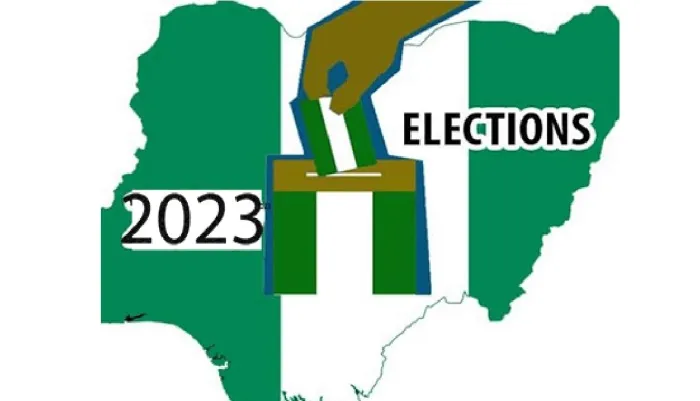2023 Elections: Trust and data accuracy come under scrutiny
By Nasir Aminu In the build-up to the commencement of the 2023 elections campaign, the first Presidential opinion poll was released a few days ago. The poll was commissioned by Anap Foundation and conducted by NOI Polls Limited. The company website says they have a database of over 70 million phone numbers in Nigeria and […]

By Nasir Aminu
In the build-up to the commencement of the 2023 elections campaign, the first Presidential opinion poll was released a few days ago.
The poll was commissioned by Anap Foundation and conducted by NOI Polls Limited. The company website says they have a database of over 70 million phone numbers in Nigeria and a high turnaround time.
Issue-based politics and the 2023 election
2023: Release funds for Court of Appeal
In a democratic system of government, opinion polling occupies a significant role within the political process. It is used by governments, parties and the mass media alike.
To some extent, polls bring political elites and citizens together. Practically speaking, political elites are less interested in transferring political power to citizens and enhancing broader democratisation processes than in exploiting opinion surveys to gain an advantage over rivals and reassert their political dominance.
Therefore, since democracy is a game of numbers, opinion polls are a powerful tool.
The result of the presidential opinion poll showed the Labour Party’s (LP) candidate – Peter Obi – was leading with 21 per cent across the six regions of Nigeria. The candidates of leading parties of the People Democratic Party (PDP), Atiku, and All Progressives Congress (APC), Tinubu, were joint-second with 12 per cent. The result was met with different sensations from various parts of the country.
The NOI poll was questionable because the distribution of preferences across regions did not add up. Specifically, that of the North East was 106 per cent, and the North Central had a total opinion percentage of 94 per cent, which makes the whole presentation doubtful, and it is customary to probe further. That means the integrity and ethics of the pollster were questioned.
When the pollster was queried about the poll’s methodology, he highlighted that he conducted the opinion poll via phone calls. About 1,000 Nigerians were contacted through their phone numbers based on geopolitical zones, gender, local government, and age.
They asked the participants whether they had their permanent voter’s cards (PVC), but the pollster did not elaborate on how many participants were dropped. Of the participants asked who they would vote for, 32 per cent were undecided, and 15 per cent refused to answer. That means about 530 people were prepared to participate before accounting for those without PVC.
Objectively speaking, the sample size of about 530 people is difficult to represent the opinion of about 95 million registered voters. Many accusations of biases by the pollster were made. But it is vital to remain focused on providing accurate data and ethical politics to preserve the integrity of the 2023 election.
To the best of my knowledge, the NOI opinion poll is the only one that has been widely circulated across the country and extended its work to sub-national elections in Ekiti and Osun as they have done in the 2015 and 2019 presidential elections. Given the significance of polling, discrediting the polls may cast doubt on other upcoming organisations. The public may not even decide to verify the accuracy and reliability of the data before they trash it. Therefore, it is crucial to challenge NOI Polls to improve their methodology and present a better result.
Of course, casting doubt on data is not uncommon across the globe, especially during elections. The UK has several opinion polls companies. One of the most rated opinion polls, YouGov, is jointly owned by Nadhim Zahawi, a Conservative Party member, and was even appointed the Chancellor of Exchequer for a brief moment. The poll’s credibility did not rely on his integrity or his party’s ethics. Instead, people were focused on the accuracy and validity of data.
Similarly, the APC government is guilty of pushing the public to cast doubt on data. President Buhari’s comments in Imo accused those responsible for publicising his achievements. When his senior special assistant on public affairs then went on television to begin the plan, a pundit asked him about the rising unemployment rate in the country since 2015. Instead of making justifications, he decided to attack the credibility of the International Labour Organisation and the National Bureau of Statistics (NBS) for providing incorrect data on the unemployment rate. The rise in unemployment is unwelcome information for anyone supporting the government, triggering a desire for closure.
The government’s mouthpiece chose to condition the public instead of justifying why unemployment is rising. It is an unethical method of politics because people will deny any documented evidence as established truths regarding specific macroeconomic indices. The worrying thing is that he did not provide any alternative source of information despite seeding bias in their thoughts. Such a group of people will find it difficult to accept the elections result and other information they find unwelcome to their beliefs.
As the largest democracy in Africa and the black race, we cannot afford to stop using data. After all, that is being used to put us in this position. However, we must be careful about how we approach data and how we go about with criticism of the opinions and data because doing so will affect the credibility of our political process. Above all, those charged with providing data should do so with ethical considerations.
Dr Aminu is a Senior Lecturer at Cardiff Metropolitan University
